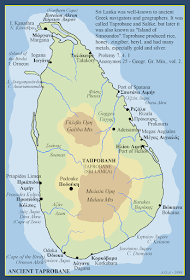Hestia is one of the most remarkable and respected figures of the Hellenic Pantheon.A merciful and noble Goddess, She expresses the Sacred Center of all things. Being kind and just, She protects the home and the family.
Hestia is a daughter of Cronos and Rhea, and sister of Zeus, Hera, Demeter, Poseidon, and Hades.From the moment Zeus began fighting to establish His power, She helped him immensely to defeat the Giants. After that, Hestia never participated in wars and conflicts again.Zeus, grateful for Hestia's help, gave Her the unique privilege of obtaining anything She wants, without the need of His approval or intervention. In addition, He granted Her the right to be honoured in all the temples of the Gods, without exception. The fire altar in all temples was dedicated to Her first, and all Greeks offered to Hestia the first and final sacrifice in every festive event. The most important vows were given in Hestia's name.
Shy and modest, Hestia is always an introvert in Her contacts with the other Gods. She keeps away from marriage, although many worthy Gods approached her, like Poseidon and Apollo. Hestia took a sacred vow of virginity by placing Her hand on the head of Zeus- and She keeps to Her oath, focusing only on protecting the homes and families of mortals.
Unlike the other Gods of Olympus, Hestia never leaves the Sacred Mountain. However, despite Her external immobility, her inner world is alive and dynamic- therefore, Hestia is the archetype of self-concentration. Her character traits, such as silence,modesty and concentration, represent values that open the way to the hidden dimensions of the soul.
Hestia is the creator of home architecture, and guards the unity of the family itself. Ancient Greeks always dedicated to Her the main part of the house- the hearth, where the fire burned and all family members gathered around it.That is the reason why Hestia always received the first offering in domestic rituals.
Hestia's presence is expressed through the life-giving element of Fire. At home, it brings people together around the hearth- and good family relationships are encouraged. Creativity, communication and hope for the future are promoted as the family gathers. They form a circle, which becomes sacred through Hestia's Fire.Ancient Greeks considered this fire as an entity which carries the will and protection of the Goddess- it assists and blesses the domestic works of people.
However, Hestia's power is not restricted within the narrow context of the house. Her Fire Altars existed in every settlement and city. They were the 'Sacred Homes' and Fire was kept always burning, through the care of the virgin Priestesses of Hestia. Disaster awaited the cities which let the Sacred Fire go out.
The colour of Hestia is white and her other symbols are the veil and the burning circle, which symbolizes the consciousness of the Self, completion and eternity.
Hestia had no image for a long time- Fire was Her natural depiction.Even in later times, Her statues were few. She is usually seen holding a clavicle and a scepter or torch in one hand,and a spear in the other.Around Hestia, there are two poles supporting lanterns.In Olympia, Hestia was portrayed between Hermes and Eros, and on the podium of the statue of Zeus.





















































